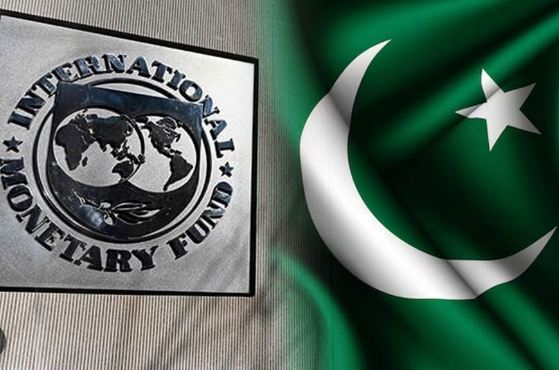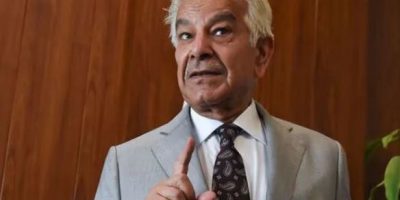IMF talks start with polls date in focus

Mehtab Pirzada
ISLAMABAD: The International Monetary Fund (IMF) on Thursday inquired the Pakistani authorities about the next general elections as well as the functioning of the Special Investment Facilitation Council — the two most crucial issues that affected the country’s political and economic landscapes.
Nathan Porter, the Washington-based lender’s mission chief to Pakistan, raised the points during his maiden meeting with interim Finance Minister Dr Shamshad Akhtar.
Porter set the tone for the 14-day long review talks that are scheduled to end on November 15 — if everything goes according to the plan.
The IMF official praised the government’s performance during the first quarter of the ongoing fiscal year — an area where the finance ministry and Federal Board of Revenue (FBR) had so far exceeded expectations.
The mission chief raised the issues of the next general polls and the SIFC’s functioning, at least two participants of the meeting told The Express Tribune.
They said the interim finance minister said she would arrange the IMF delegation’s meetings with the Election Commission of Pakistan (ECP) and the SIFC secretariat.
Hours after the IMF-Pakistan opening session, President Dr Arif Alvi and the ECP agreed on February 8 as the elections date when they met on the directives of the Supreme Court, clearing the air on the political horizon of the country.
The elections date has direct implications on the next IMF programme review and also on any new deal with the Washington-based lender.
The tentative date for the IMF board meeting for the next review is March 1, implying that the third review for the $1.2 billion tranche should take place in around February next year.
The current $3 billion IMF bailout was given for a period of nine months, ending in April next year on the assumption that the new government would enter into another programme after the elections.
On Thursday, the IMF mission began discussions for the first review of the $3 billion programme, which would pave the way for the approval of a $710 million loan tranche by the Washington-based lender’s executive board in December.
The IMF has imposed a set of conditions in nearly every major area of the budget, with some of them being time-bound and others to be implemented throughout the fiscal year.
The SIFC is a civil-military body set up to attract foreign investment in Pakistan.
According to a recent report by the Policy Research Institute of Market Economy (PRIME), the SIFC may fall short of its mission to attract significant foreign investment because of its lack of focus on structural issues.
The PRIME report cautioned that the inclusion of the military in economic decision-making without the requisite expertise could not only destabilise the country, but also lead to the failure of key initiatives.
However, an SIFC official negated the concerns raised in the PRIME report, arguing that it was too early to make a judgment about the body, which had just started working in June this year.
The sources said the IMF mission chief outlined the energy sector and tax reforms as the primary areas of discussions during the review talks.
The IMF delegation will also review the Circular Debt Management Plan. The plan is being implemented to control the circular debt in the power sector.
The Washington-based lender’s team asked about the government’s policy on the supply of gas to fertiliser plants, while referring to the last meeting of the Economic Coordination Committee (ECC) of the Cabinet.
On Wednesday, the ECC could not agree on the discontinuation of subsidised gas supply to two fertiliser plants and extended it for another two weeks aimed at developing consensus among all stakeholders.
The sources said the IMF team also suggested to the Pakistani government that it should no longer set the fuel prices.
The government fortnightly sets the fuel prices but the IMF is of the view that they should be left to the market forces.
Former finance minister Miftah Ismail had once suggested ending the role of his ministry in determining the fuel prices, but subsequently the proposal was shelved.
The interim finance minister also assured the IMF to arrange a briefing on the Sovereign Wealth Fund, which the government had set up in August and transferred the assets of profitable entities into it.
Related News

India’s claims of China’s ‘live inputs’ support aimed at pacifying domestic audience: Asif
ISLAMABAD, JUL 5: Defence Minister Khawaja Asif rejected the top Indian Army officer’s claims aboutRead More

Naqvi terms ‘change at presidency’ reports social media speculations
ROHRI, JUL 5: Interior Minister Mohsin Naqvi on Saturday rejected reports claiming the removal ofRead More


Comments are Closed